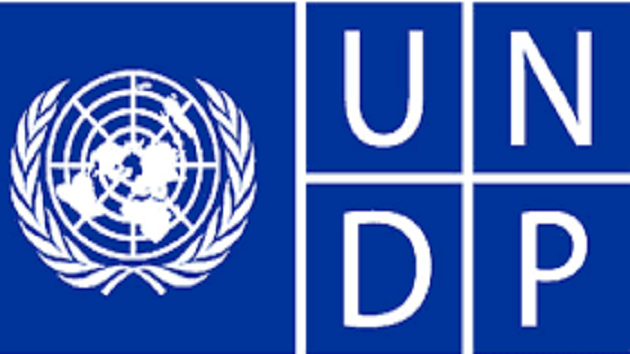E-Financial
Financial Institutions in Nigeria, Others Battle Cyber Mercenaries

Cyber mercenaries or hackers-for-hire are evolving their techniques and upgrading their toolset to continue stealing sensitive information, a trend that poses a big challenge to companies across Nigeria, Kenya, and South Africa, with damaging consequences for banks.

Despite research showing an overall decrease in certain malware families and types in sub-Saharan Africa (SSA) in the first half of 2020 (36% decrease in South Africa, 26 percent decrease in Kenya and a 2.7% decrease in Nigeria), Kaspersky, an internet security company stresses that the human cyber threat remains rife, where Africa is not immune to the evolving techniques of Advanced Persistent Threats (APTs), as well as the possibilities of being a future target of a hacking-for-hire threat actor groups.
Three cyber mercenary groups have been exposed across the world this year alone. As this activity has taken place outside of Africa, Kaspersky suspect that these types of actors may have been somewhat forgotten and do not necessarily form part of cyber defence strategies.
Nevertheless, the region may become a focus of these groups in the coming months and thus, businesses and entities need to have an understanding of these emerging threats, along with the threat of APTs, to be prepared and take proactive steps towards effective cybersecurity.
Hackers-for-hire or cyber mercenaries do not necessarily have monetary motivations like traditional cybercrime. Instead, they steal private data to monetise it in a different way – usually for the purpose of providing advice or insights, based on the data, to share value of competitive advantage.
For example, a bank might get targeted and have its data analysed to gain an understanding of its market exposure, clients, and back-end systems. A competitor can use that to gain significant benefits.
The reality is that in this evolving cyber threat landscape, no company or government institution can consider themselves safe.
In South Africa, Kenya, and Nigeria, APT groups are exploiting the current uncertainty around COVID-19 to steal sensitive information.
More sophisticated techniques have emerged that delivers malware in non-conventional ways. While overall malware attacks in South Africa, Kenya, and Nigeria decreased during the first two quarters of 2020, certain malware types, such as the STOP ransomware, are proving increasingly popular for certain cybercriminals.
E-Financial
NIBSS Says about 20m Bank Accounts Dormant in Nigeria

The number of dormant bank accounts in Nigeria is over 19.69 million, according to the industry customer account database released by the Nigeria Inter-Bank Settlement System (NIBBS).

Dormant accounts are accounts that have been inactive for one (1) year or more, while domiciliary are accounts that hold currencies other than the Naira
The data, which tracks monthly account statuses throughout 2024, indicates a steady rise in inactive accounts, coinciding with new regulatory measures by the Central Bank of Nigeria (CBN) requiring commercial banks to publish details of dormant accounts.
The CBN directive, issued to enhance transparency and return unclaimed funds to rightful owners, comes amid concerns that a significant number of accounts have remained idle for extended periods.
According to the NIBSS data, dormant accounts remained above 19 million every month since February 2024, with December closing at 19,697,125 inactive accounts.
This represents an increase of 1,205,000 from January’s figure of 18,492,169, marking a 6.51 per cent rise over the year.
The peak was recorded in May and June when the number reached 20.57 million before dropping slightly in the second half of the year.
The data further shows that there was an increase of 2.08 million dormant accounts between the first six months of 2024 before the CBN’s July directive on such accounts.
Credit: Punch
E-Financial
NAICOM, UNDP, Others to Promote Insurance Literacy, Consumer Protection

The National Insurance Commission (NAICOM), and the United Nations Development Programme (UNDP) recently took their Insurance Literacy and Consumer Protection Campaign to Wuse Market, Abuja.

NAICOM said the campaign was targeted at educating traders and the general public on the importance of insurance.
The campaign, tagged “Insurance Literacy and Consumer Protection Campaign: A UNDP (Nigeria) Project 2025,” also aimed at enhancing financial resilience and promote inclusive insurance as a vital tool for reducing poverty and building financial inclusion among Nigerians.
The UNDP representative, Mrs Bukola Ifemade welcomed participants to the event and expressed appreciation to all stakeholders.
Key points in their discussions include Fire and Special Perils Insurance as a way to compensate traders for losses or damages caused by fire, storms, floods, and impact by vehicles or animals.
They also educated participants on the relevance of Goods in Transit Insurance policy saying it provides immediate financial compensation for losses or damages during transportation.
Accident Insurance policy the campaigners said offers financial compensation for injuries or deaths resulting from accidents. Life Insurance was described as a vital tool for leaving inheritance for dependents in the event of untimely death.
The Commissioner for Insurance, Mr. Olusegun Ayo Omosehin, emphasised NAICOM’s core mandate to protect policyholders and regulate the insurance industry.
Other stakeholders, including the Nigerian Council of Registered Insurance Brokers (NCRIB) and the Nigerian Insurers Association (NIA) also provided guidance on purchasing genuine insurance policies and verifying their authenticity to the participants.
E-Financial
Fidelity Bank’s CSR Initiative Boosts Educational Infrastructure in Benin and Abuja

Fidelity Bank Plc, a leading financial institution, has once again demonstrated its unwavering commitment to enhancing its host communities’ lifestyles. Through its dedicated education Corporate Social Responsibility (CSR) pillar, the bank recently undertook significant projects aimed at promoting quality education delivery across the country.

In Benin-City, Edo State, Fidelity Bank recently renovated the library at Emotan College, Wire Road. This initiative, which was executed under the auspices of the Fidelity Helping Hands Program (FHHP), was championed by the Phoenix Inductee Class of Fidelity Bank. The FHHP allows Fidelity Bank staff to identify community needs, raise funds, and receive matching support from the bank to implement impactful projects.
At the official handover ceremony, Ovie Mukoro, Regional Bank Head, Midwest 1, Fidelity Bank Plc, highlighted the alignment of the renovation project with the bank’s CSR pillars, emphasizing the promotion of quality education and youth empowerment. Mukoro stated, “The renovation project reflects the Bank’s commitment to enhancing the lives of its host communities through the dedication and generosity of its newly inducted staff who voluntarily contributed funds to support the project.”
The Principal of Emotan Junior College, Mrs. Idukpaye Henrietta, expressed her gratitude, noting that the investment in the school is an investment in the nation’s future. She looked forward to a lasting partnership that would continue to uplift and empower the students. Similarly, Mrs. Sandra Iyalekhue, Acting Education Secretary, Oredo Local Government Education Authority (LGEA), commended Fidelity Bank for the kind gesture, noting that the project would contribute to the educational development of the students and promote research work.
In Abuja, Fidelity Bank further demonstrated its CSR commitment by donating 40 tables and chairs to LEA School at the Federal Capital Territory. This initiative, also executed under the FHHP by the Prodigies Inductees Class, aims to support quality education delivery in a bid to achieve the Sustainable Development Goals (SDG) 4 – Quality Education.
Meksley Nwagboh, Divisional Head, Brand and Communications, Fidelity Bank Plc, emphasized the importance of supporting education as a tool for societal improvement. He stated, “At Fidelity Bank, we recognize the importance of supporting education as a tool for improving society. Through initiatives like this, we aim to ensure that every child has access to essential educational resources and become an asset to their family, their community and the nation.”
The headmaster of LEA School, Mr. Mohamed Musa, expressed his gratitude for the timely intervention, noting that the donation would address the critical need for adequate classroom seating, preventing students from having to sit on the floor during classes. He encouraged other corporations to follow Fidelity Bank’s lead and support quality education delivery.
These initiatives come to join a long list of Fidelity Bank’s interventions in the education sector. It will be recalled that the bank launched the Read2Lead Initiative last year to foster a culture of reading and writing among young people. The bank also hosted a webinar targeted at businesses operating in the education sector, themed, “Maintaining Educational Standards Amidst Current Economic Realities”, in September 2024 as part of its strategy to improve the country’s education system.
Ranked among the best banks in Nigeria, Fidelity Bank Plc is a full-fledged Commercial Deposit Money Bank serving over 8.5 million customers through digital banking channels, its 251 business offices in Nigeria and United Kingdom subsidiary, FidBank UK Limited.
The Bank is the recipient of multiple local and international Awards, including the Export Finance Bank of the Year at the 2023 BusinessDay Awards; the Banks and Other Financial Institutions (BAFI) Awards; Best Payment Solution Provider Nigeria 2023; and Best SME Bank Nigeria 2022 by the Global Banking and Finance Awards. It was also recognized as the Best Bank for SMEs in Nigeria by the Euromoney Awards for Excellence 2023 and the Best Domestic Private Bank in Nigeria by the Euromoney Global Private Banking Awards 2023

 Telecom2 days ago
Telecom2 days agoToriola, MTN Nigeria CEO again Defends Tariff Hikes amidst Backlash

 E-Business2 days ago
E-Business2 days agoSouth Korea Joins List of Countries Banning DeepSeek over Security Concerns

 E-Business2 days ago
E-Business2 days agoAU Endorses Nigeria as AfCFTA Digital Trade Champion

 Telecom2 days ago
Telecom2 days agoIoT West Africa & Data Centre Cloud Expo 2025 Set to Boost Africa’s $180Bn Digital Economy

 E-Financial2 days ago
E-Financial2 days agoUBA Announces Successful Completion of System Upgrade

 News2 days ago
News2 days agoWiSolar Offers Base Pay for Nigerian Partners

 News2 days ago
News2 days agoRaji Takes over as NBTI Boss, Pledges to Drive Technological Growth

 Broadcasting2 days ago
Broadcasting2 days agoKongaFM -103.7 Launches “Shop On Radio”, First in Africa



























